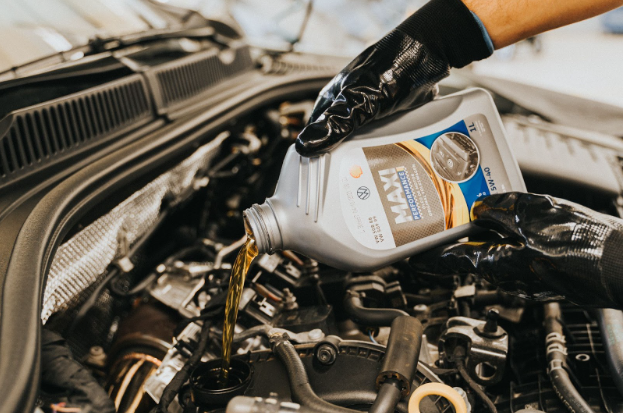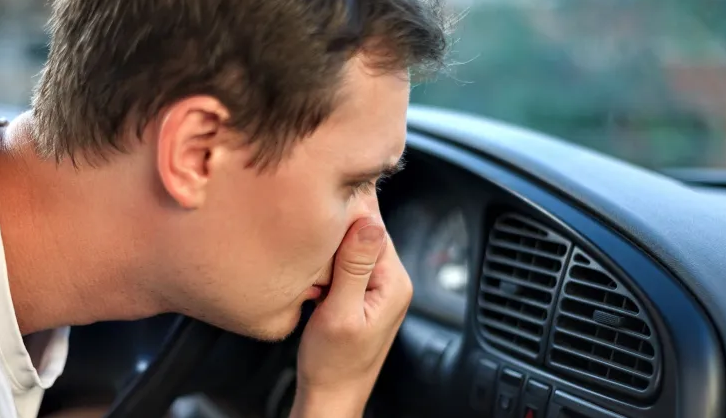5 Symptoms Of Dirty Engine Oil
Engine oil is the lifeblood of any combustion engine. It lubricates the engine’s moving parts while removing carbon buildups and preventing overheating. But how can you tell if the oil is dirty when you can’t even see it circulating inside the engine block?
Photo by Daniel Andraski
There are 5 clear symptoms you must recognize to know if your engine oil is too dirty. The first hint is when warning lights appear on your dashboard, like the Check Engine, Oil Pressure, or Engine Overheating indicators. Besides that, poor engine performance, loud noises, burning smells and excessive temperatures are also clear signs that your engine is long overdue for an oil change.
Read through this article to discover the 5 symptoms of dirty engine oil. Learning how to recognize the signs can save you from severe engine damage and help you avoid expensive repairs down the line.
What Are The Symptoms Of Dirty Engine Oil?
Engine oil circulates within the engine block away from sight. As a result, you can’t tell if the oil is clean or dirty just by looking at it. Thankfully, there are plenty of ways to tell if your oil is dirty and in desperate need of replacement.
Here are 5 symptoms that your car’s engine oil is getting too dirty:
Photo by drivesmartwarranty.com
1. Warning Lights Or Indicators
One of the first signs you’ll see suggesting you have dirty engine oil is a warning or indicator light on your dashboard.
Some of the common indicators that’ll illuminate are the following:
The Check Engine light
The Oil Pressure light
The Engine Overheating indicator
As you’ll see below, dirty oil circulating inside your engine can cause various problems. Each of these problems will trigger a separate indicator to appear on your instrument panel.
For example, one or more of the lights listed above will turn on depending on which problem is present, whether that be engine problems, low oil pressure, or engine overheating.
When you see any of those lights suddenly turn on, your top priority should be to take your car to your preferred workshop immediately. There, the mechanic will perform further troubleshooting and inspection.
You’ll likely find that you must flush the existing oil out and replace it with fresh engine oil.
Photo by Jim Ellis Volkswagen of Kennesaw (6 Things Everyone Needs to Know About Their Car Engine)
2. Poor Engine Performance
The second sign that your engine oil is dirty is poor engine performance.
Remember: engine oil’s primary purpose is to lubricate the many moving parts inside your engine. That’s done by coating the surfaces inside and minimising friction between metal parts.
As the engine oil becomes dirtier over an extended period, it loses its ability to provide lubrication effectively. That will cause metal parts to grind against each other and have difficulty moving.
You won’t notice those problems until the vehicle suffers performance issues. For example, the engine might accelerate weekly or not at all. Meanwhile, you might also notice your engine misfiring and jerking even when you’re driving at a consistent speed.
Poor engine performance is the symptom that appears in the short-term. But if you let it continue for too long, you’ll allow the engine to cause extensive internal damage to itself.
That will lead to much more expensive repairs later on.
Photo by OLX Content Hub (Car Noise Pollution)
3. Unusual Noises
Your sense of hearing is another crucial way to tell if your engine oil is dirty. That’s because dirty engine oil and all the problems described in the previous section will produce loud noises you can hear from the driver’s seat.
Unmistakable noises like knocking, grinding, and squealing will come directly from the engine because of dirty engine oil. While engines make gentle vibrating and humming noises, you can quickly tell when those noises become problematic.
It’s not hard to imagine that those noises come from the engine’s internal components that no longer have sufficient lubrication.
And as you read earlier, that happens because the engine oil is too contaminated to flow smoothly and do what it’s designed to do.
Photo by Car Throttle (Common Causes Of Engine Overheating And How To Fix Them)
4. Engine Overheating
Your engine primarily relies on the radiator and cooling system to manage its temperatures. Besides that, engine oil also supports that effort by absorbing and distributing excess heat to prevent an overheating condition.
Unfortunately, dirty engine oil cannot do that efficiently. Based on what you’ve read earlier in this article, you know that engine oil doesn’t flow smoothly when it’s old and contaminated.
As any automotive college student will tell you, the cooling system will quickly become overwhelmed when that happens, causingthe engine to overheat.
But worse still, the dirty oil will absorb and retain excess heat in certain parts of the engine instead of distributing it evenly. Those sections where there’s a concentration of excess heat are called a ‘hot spot’, and it risks damaging the engine permanently if it becomes too severe.
Photo from Practical Motoring (How to fix a bad smell in your car)
5. Burning Oil Smells
The final symptom on this list is a combination of the overheating engine and dirty engine oil. Combining the two produces burning oil smells you’ll notice from inside the vehicle.
Those burning oil smells will first come out of the exhaust system, surrounding your vehicle’s exterior with that strong smell. However, some of it can also leak directly into the cabin, where you and your passengers can notice it immediately.
Any concentrated smell like that is bound to make people sick, so you must shut the vehicle off and allow it to cool down before troubleshooting and resolving the issue.
Why Does Engine Oil Get Dirty?
Engine oil naturally becomes dirty over an extended period for several reasons, including the following:
Irregular changes: The first and most common reason your engine oil gets dirty is you wait far too long to change it. Engine oil naturally loses its viscosity with time, and it collects contaminants within the engine as it circulates. The longer it’s in the engine, the dirtier it becomes.
Oil filter: Engine oil also becomes dirty if you don’t change the oil filter. The filter is there to remove impurities from the oil. But if the filter is saturated with debris, it will further contaminate the circulating oil.
Damaged components: If your engine oil is contaminated with tiny metal particles, that’s because the engine’s parts are damaged. As they grind against each other, they release metal particles into the oil, making it dirtier than usual.
Final Thoughts
The problem of dirty engine oil rarely happens if you maintain your car correctly. Regular oil and oil filter changes ensure that your engine components only enjoy fresh oil that prevents things from going bad.
But if the engine has oil that’s too dirty, you’ll need to drain everything out and flush the engine before pouring in fresh fluids.
When you pursue an education at TOC Automotive College, the best automotive college in Malaysia, you’ll learn how to maintain a motor vehicle far beyond performing simple oil changes.
Instead, world-class courses like the Master Technician Course (MTC) will train you to identify, diagnose, and repair problems in all of a car’s many different components.






